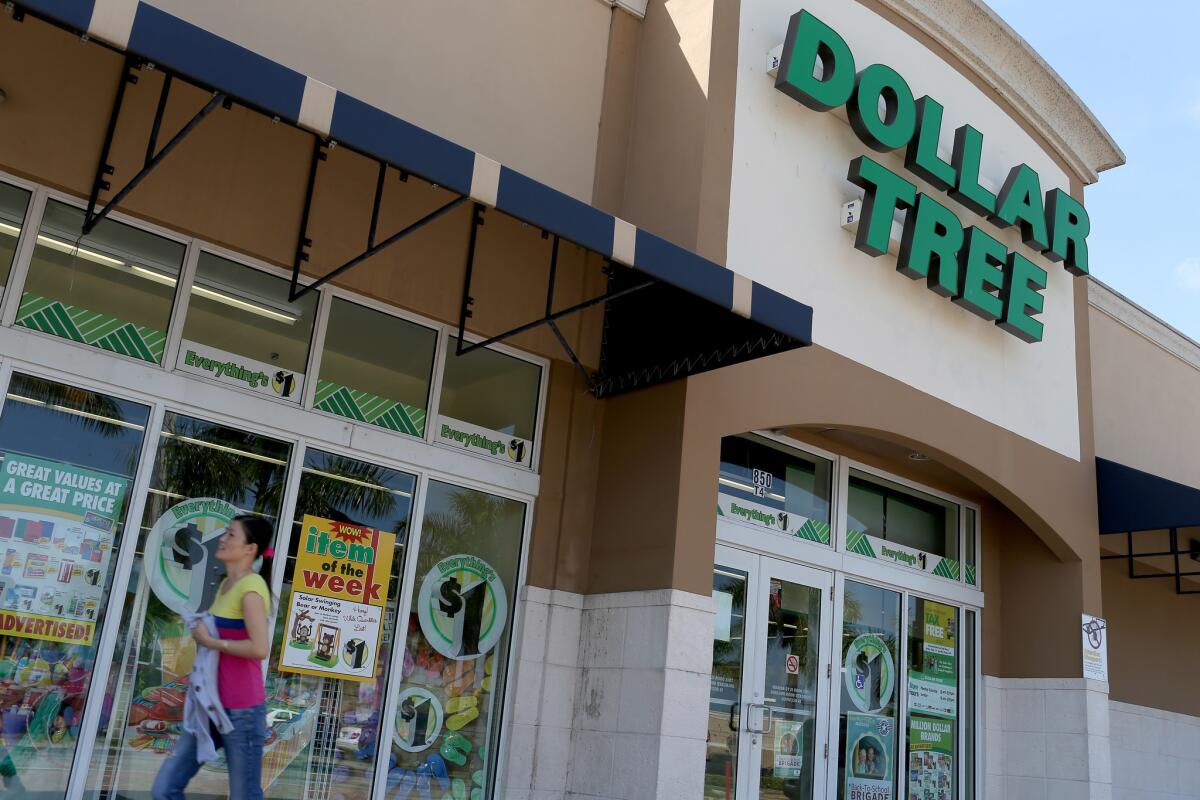The dollar store merger shows just how badly Americans are doing

Mergers-and-acquisition types on Wall Street are no doubt cackling over the proposed $8.5-billion merger of Dollar Tree and Family Dollar Stores -- and why not, since it was spurred in part by corporate sharpshooter Carl Icahn?
But the grim reality underlying the deal is that there are so many American households struggling that the market segment is worth battling for. And the fight is all the more ferocious because the spending of these households is stagnant, like their income.
What’s especially demoralizing is that these shoppers are even falling below the radar screen of those traditional retail destinations of the low-price market, Wal-Mart and Target.
Both retailers have reported weak to declining same store sales in recent months -- at Wal-Mart, sales at stores open at least a year were down 0.6% for the year ended Jan. 31. A Wal-Mart executive cited high unemployment, along with “reductions in government benefits, higher taxes and tighter credit.”
Among other things, he’s talking about cuts in food stamps and unemployment benefits, and the restoration of the payroll tax to its full 6.2% level. The results demonstrate that fiscal stimulus has never been strong enough to achieve an adequate recovery, and that too much of it has been withdrawn prematurely.
The other important factor is income inequality. Retailers and services aimed at the top 1% are doing fine in this economy. But that’s not sustainable. Inequality in the United States is burgeoning; far too much of national income is sucked up by the wealthy, and too little by the middle- and working-class, who would keep their earnings in circulation. (See the accompanying charts for a look at the toll of rising inequality.)
When they don’t have enough to get by, their spending plateaus. That’s not good for Wal-Mart and Target, and it’s not even enough to keep all the retailers in the low-low-price segment healthy. The harvest is consolidation in the dollar segment, exemplified by the Dollar Tree/Family Dollar deal. But that’s a dark sign of what lies ahead. The only people seeing bright lights in the distance are the investment bankers cashing in on the deals.
Keep up to date with The Economy Hub by following @hiltzikm.
More to Read
Inside the business of entertainment
The Wide Shot brings you news, analysis and insights on everything from streaming wars to production — and what it all means for the future.
You may occasionally receive promotional content from the Los Angeles Times.











